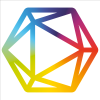Systems and Tools
Find the important tools, systems and databases that are used to conduct, report and manage research activities at UTS.
Available Systems
Manage your research
At UTS, these systems are used for data management of funding applications, ethics approvals, research outputs, research profiles, data storage and more.
- At UTS, ResearchMaster is our system for managing funding applications, ethics approvals, costings and research agreements. Use this tool for all your research project planning and management as well as any HDR candidature management that you undertake.
- Stash is the research data management platform for UTS researchers to create and maintain research data management plans (RDMPs) throughout the research lifecycle, archive and publish research data at the end of research projects. It helps ensure all the important information about your research data is kept in one place, and allows the link between the RDMP and other research data services like data collection, data storage, and data analytics tools.
- A useful tool for group leaders to oversee team research activities, Lab Archives eNotebooks are an electronic version of the traditional paper research notebook. They can be used in the lab as a formal lab notebook, for field work, or simply for keeping track of research. eNotebooks manage IP securely with version tracking and signing and are increasingly replacing hardcopy lab and field notebooks. Any changes and edits are clearly recorded and images and raw data files can be organised into folders. You can share your eNotebook securely with anyone as a secure, portable, and archivable record of research activities.
- Symplectic Elements is your tool for managing your research outputs and profile. It reduces the administrative burden of research while enabling you to access powerful insights. The tool harvests publication data from sources such as Scopus, Web of Science, PubMed, RePEc, and SSRN and is used to upload content to OPUS. It also displays outputs on the UTS website and populates research outputs data for My Researcher Dashboard. As a researcher, your Symplectic Elements account is automatically setup when you join UTS. Professional staff need to actively create a profile.
- GitLab is a version control platform hosted by eResearch @ UTS, offering two distinct instances to support collaborative software development. The internal Git instance is accessible only via the UTS VPN or while on campus, ensuring secure access for university staff. The external-facing Code instance allows for public repository access and enables collaboration with external users upon request. Both platforms support efficient project management through Git-based version control, making it easy to track changes, review code, and deploy updates. Whether you're working solo or with a team, GitLab provides the flexibility and tools needed to manage your research software securely and effectively.
- OMERO is a secure research platform for uploading, viewing and annotating images from microscopes and other imaging instruments, accessible via both web and desktop clients. It provides centralized storage for imaging data, allowing researchers to manage, organize and collaborate on imaging datasets throughout the research lifecycle. With built-in annotation functionality, OMERO supports detailed image documentation and collaborative analysis. Access requires a connection to the UTS network or VPN, ensuring secure handling of sensitive research data.
Gain research insights
These online databases and tools allow researchers to gain insights into their collaborative activity, research outputs, analytics and intelligence and research performance.
- Dimensions is a linked research knowledge system that brings together grants, publications, citations, alternative metrics, clinical trials, patents and policy documents to deliver a platform that enables you to find insights to inform future strategy. The platform offers access to the world’s largest linked research database, covering publications, grants, patents, clinical trials, datasets, policy documents and technical reports.
- Altmetric presents metrics and qualitative data that are complementary to traditional, citation-based metrics such as peer reviews, citations on Wikipedia and public policy documents, discussions on research blogs, mainstream media coverage, bookmarks on reference managers like Mendeley and mentions in social networks. Altmetric charts how often journal articles and other scholarly outputs like datasets are discussed and used around the world, measuring reach beyond academia.
- A Power BI Dashboard, Group Research Insights provides an easy way for research group leaders to track collaborative research activity, research outputs, income and HDR data. The tool provides information about both publications and non-traditional research outputs and tracks HDR load and completions so that research managers can see information aggregated across their group as well as the information of the individuals they manage. The dashboard provides easy, transparent and up to date access to research data held in several of the university’s databases. Access must be requested via Service Connect. You will need an email from your supervisor confirming the level of access requested.
- A Power BI Dashboard, Researcher Insights displays current and historical research activity of up to 5 years. The dashboard provides easy, transparent and up to date access to your personal research data, including that held in several of the university’s databases such as HDR student enrolment, progression and completions data as well as any research income including grants and donations.








